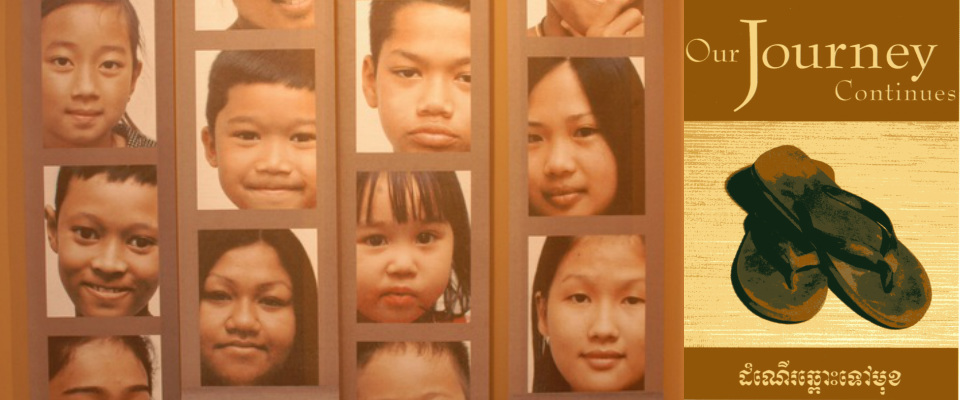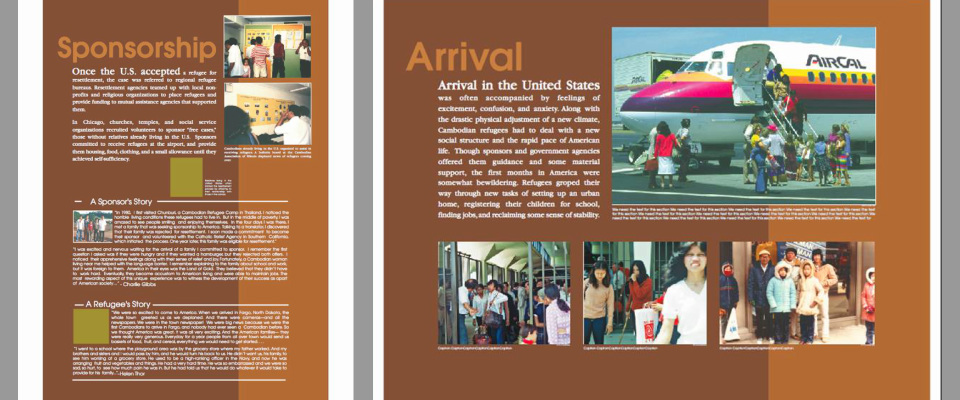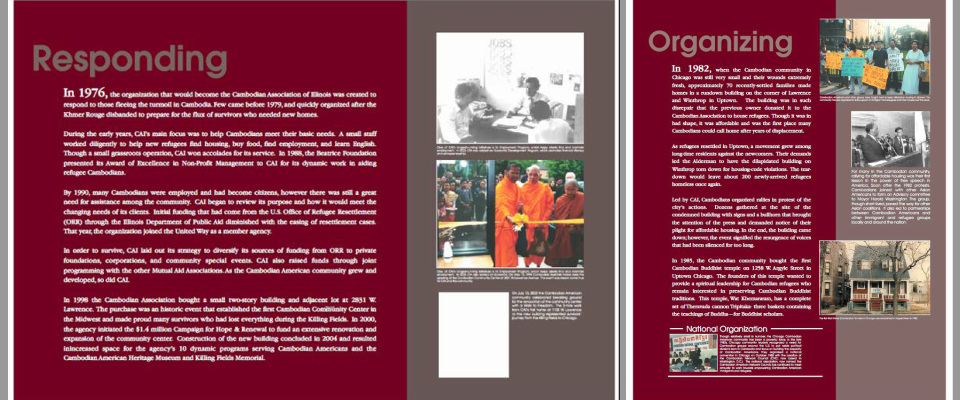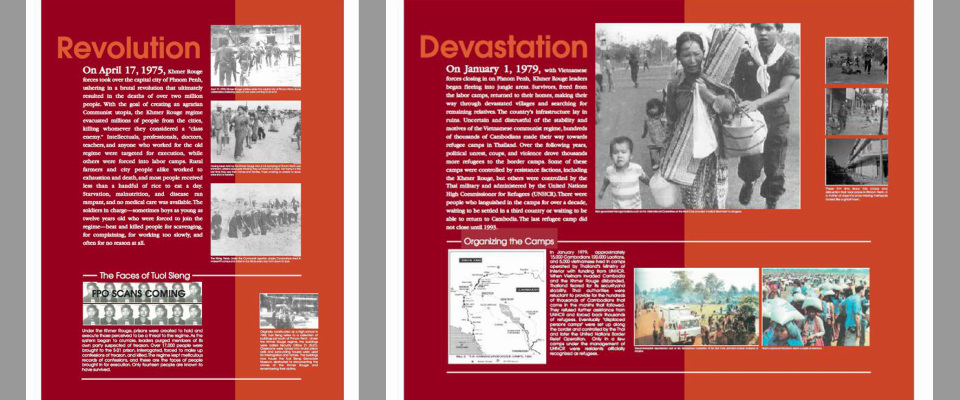The Triumph of the Cambodian American Community
"Our Journey Continues" was generously funded by Bank One, a subsidiary of JPMorgan Chase.
The 1970s brought destruction to the small Southeast Asian country of Cambodia
The war in neighboring Vietnam displaced hundreds of thousands and created unrest that allowed the Maoist Khmer Rouge regime to gain power. During the regime's 3 year rule, millions of Cambodians died of starvation, disease, and outright execution. Education, culture, and medical care were forbidden, and life was reduced to forced labor in rice fields under the threat of death. When Vietnamese forces invaded Cambodia in 1979, the population was decimated and many survivors fled to the Thai border.
Refugees struggled to maintain hope for a better future while they languished in refugee camps for up to 7 years. While waiting for sponsorship to a third country, survivors tried to heal their physical and emotional wounds, and reclaim the culture and community they lost years before. Rudimentary schools and medical clinics formed, weddings and other religious ceremonies resumed, and a new generation of Cambodians was born in Thailand.
Refugees left the camps as they were sponsored for resettlement.
Over 150,000 arrived in America, most via religious organizations and concerned individuals. Only a few thousand came to Chicago, where they were provided food, a small apartment in Uptown, and referred to English classes. These refugees struggled to adapt to American culture and the urban lifestyle, all the while mourning the family, friends, and lives they lost in Cambodia.
A very small group of Cambodian Americans who were already in Chicago reached out to the newly arrived refugees, as did many public and private service agencies. One by one, the newcomers started new lives here; finding work, learning the language, and sending their children to school. As they became self-sufficient they began to revitalize the culture that was left in Cambodia, by founding Buddhist temples and establishing a community center to pass on music, dance, and language to their children. They became citizens, participated in elections, and organized themselves to meet their needs and those of their neighbors.
